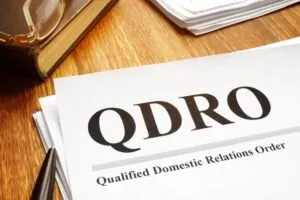Dividing Retirement Accounts During Divorce: What You Need to Know
Divorce is already one of the hardest things you’ll face. But when it comes to splitting assets, nothing can be as confusing or emotionally draining as dividing retirement accounts. For many couples, these accounts are the result of years—sometimes decades—of planning and sacrifice. Now, the future you imagined together feels like it’s slipping away.
If you’re feeling overwhelmed, you’re not alone. Dividing retirement money isn’t just about splitting it down the middle. Different accounts come with different rules. And a small mistake here? It can cost you thousands of dollars or even years of lost retirement benefits.
That’s why having a divorce lawyer by your side is so important. They fight to ensure you get treated fairly and help protect your financial future. You don’t want to lose what you’ve worked so hard for.
Contact Us Today For A Consultation
What Retirement Accounts Are Considered Marital Property?
You might think retirement accounts are yours alone. After all, you earned every dollar. But, in most states, any contributions made during the marriage are considered marital property. That means they’re subject to division in a divorce.
This includes things like:
- 401(k) accounts
- IRAs (both Traditional and Roth)
- Pensions
- Government or military retirement plans
- Employer-sponsored plans such as 403(b)s or 457 plans
Even if only one spouse’s name is on the account, the money may still be considered jointly owned if it was contributed during the marriage. It might feel unfair. Honestly, it often does. That’s why having a divorce attorney who can explain what counts—and what doesn’t—is so valuable.
How Are Retirement Accounts Divided in Divorce?
Your state usually decides how these accounts get divided in one of two ways:
- Community property states: Here, most assets earned during marriage are split right down the middle. Doesn’t matter who earned more or contributed more, usually, it’s a 50/50 split.
- Equitable distribution states: In these states, courts look for what’s “fair,” not necessarily equal. They’ll consider income, how long the marriage lasted, contributions made, and future needs before deciding who gets what.
If you’re thinking, “Wait, I worked for that pension,” you’re not alone. Courts take all that into account, but it can get complicated fast. One tricky part is that retirement accounts often can’t be split without a special court order. That’s where a QDRO comes in.
What Is a QDRO and Why Do You Need One?
A Qualified Domestic Relations Order, or QDRO, is a legal document that tells the retirement plan administrator how to divide the assets between ex-spouses. Even if your divorce decree says you get a share, the retirement plan won’t release any funds without a QDRO.
Here’s a real-life example: One woman was awarded the house in her divorce, but her ex-husband kept his 401(k). Without a QDRO, she risked losing her share of his retirement money completely.
Not every account requires a QDRO, but many do—especially 401(k)s and pensions. And if the QDRO isn’t done right or gets delayed, you could lose thousands in benefits or face penalties. Having a divorce attorney draft or review your QDRO isn’t just smart, it’s absolutely necessary to protect what’s yours.
How Are IRAs and Roth IRAs Divided in Divorce?
IRAs and Roth IRAs are handled a bit differently from 401(k)s and pensions. You don’t need a QDRO for these, but there are strict IRS rules that must be followed.
The key is that the transfer has to be part of your divorce agreement, and the money must go directly into your ex-spouse’s IRA. If it doesn’t—or if the process isn’t done correctly—you could face unexpected taxes or early withdrawal penalties.
Missing one small detail here can cost you a lot. That’s why having a knowledgeable divorce attorney guide you through the process is vital for your financial future.
Can Retirement Accounts Be Used for Spousal Support?
Sometimes, yes. Courts may look at retirement funds when deciding spousal support or alimony, especially if one spouse gave up career opportunities to care for the family or raise kids.
For example, if one spouse stayed home for 15 years, they likely didn’t have the chance to save as much for retirement. Judges often consider this and might include retirement benefits in support agreements.
This part can get complicated, though. How the court weighs it depends a lot on your individual situation. A divorce lawyer can help you understand how this might apply to your case.
What If the Other Spouse Is Hiding Retirement Assets?
Unfortunately, it happens more often than you’d expect. Sometimes, one spouse tries to hide money by opening secret retirement accounts or transferring funds to places you don’t know about.
That’s when legal tools like discovery become important. A divorce attorney can demand financial records, subpoena documents, and even hire forensic accountants to dig deeper. It’s all about ensuring you get your fair share, especially when the other side isn’t honest.
Will Taxes Affect My Share of the Retirement Account?
Yes, and if no one explains this to you, it can seriously shrink what you actually receive.
For example, 401(k)s are taxed when you withdraw the money. Roth IRAs, on the other hand, are funded with after-tax dollars, so withdrawals usually aren’t taxed. The type of account you have—and how it’s divided—can make a big difference in what ends up in your pocket.
Having a trusted divorce lawyer and, ideally, a financial advisor, can help you avoid nasty tax surprises later.
When Should You Talk to a Divorce Lawyer?
Honestly? The moment retirement assets become part of the conversation.
We’re not talking about small details here. This is your future, your ability to retire comfortably, and your financial security. Waiting too long can make fixing mistakes almost impossible.
Even if you think your divorce will be friendly and simple, things can change quickly. A lawyer can make sure your settlement is rock solid, all paperwork is correct, and your rights stay protected every step of the way.
You’ve Worked Too Hard to Leave Your Future to Chance
Retirement accounts aren’t just numbers on paper. They represent every late night, every raise you saved, every plan you made for “someday.” You didn’t work this hard just to risk losing it all in a divorce.
It’s easy to get caught up in fights over the house or custody. But your retirement matters just as much. It’s your freedom. Your future.
Trying to handle this on your own can lead to expensive mistakes.
A family law attorney in Spokane, WA can help you understand your rights, protect what you’ve earned, and ensure nothing slips through the cracks. You’ve already been through enough. You deserve a future you can count on. Get the help you need so you can move forward with confidence and peace of mind.






